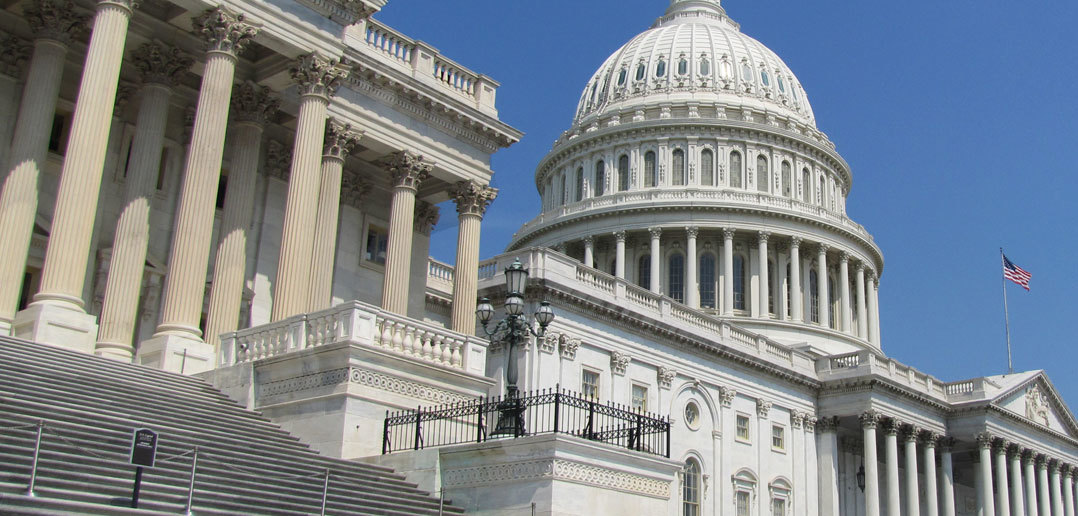On a day when traffic is light, Rick Wingrove hopes to arrive in Washington D.C. in less than two hours. Dressed in a suit, he rides of out Leesburg, VA towards the nation’s capital on his Honda Goldwing motorcycle when conditions permit. If not, he’s content to use his Nissan pickup truck, the license plate reading “ATHE1ST.”
His purpose in D.C. is in the service of American Atheists—a nonprofit, nonpartisan organization founded in 1963 with the mission of safeguarding the total separation of church from state, protecting the civil liberties of atheists and nonbelievers, and promoting rational policy based on science and society. Being Virginia’s state director of the group, Wingrove acts as an unpaid, part-time Capitol Hill representative who lobbies within the nation’s heart on behalf of secularism.
Wingrove’s specific duties are clear. “I monitor congressional activity for legislation that infringes upon, erodes, disregards, or attempts to circumvent the establishment clause of the First Amendment.” When a situation arises, he alerts American Atheists and the threat is assessed. Direct lobbying, protests, letter-writing campaigns, press releases, letters to editors; these are all possible responses that Wingrove might employ to deal with a governmental issue.
A 59-year-old native of Plainview, TX and father of one, Wingrove has a long history of religious disbelief. Since the age of 10, he found himself disinterested in attending church when his mother insisted he and his sisters go. He developed a love for science as he grew older, possessing a particular fondness for paleontology and astronomy. He aligned himself with material evidence over superstition, and refused to reconcile the two. “What [I was being told] at church directly contradicted the incontrovertible evidence in the rocks and in the stars,” he recalled.
Atheism as a declared rejection of celestial dogma took hold of Wingrove when he was 16, and he never wavered since. “I heard someone say in passing, ‘maybe man created god in his own image.’ After that, I was done with church,” he said.
After giving college a try, Wingrove joined the United States Navy in January of 1969 and served there until September of 1972. He walked away obtaining a Petty Officer Third Class ranking. Though it was the height of the Vietnam War, he proudly proclaimed himself a foxhole atheist and still does to this day.
His first taste of activism came in 1994 when Virginia’s Loudon County’s school district fell victim to individuals Wingrove calls “Stealth Christians.” Though they sound like crucifix-throwing assassins, these people appear in large numbers at school-board meetings to push through religious programs. “Once in, they ram through Christian agendas, which included student-led prayer, the teaching of biblical creationism, and book banning,” he explained.
The ACLU originally stomped out the unconstitutional notion of student-led prayer in Loudon after winning a lawsuit against the county’s school district. But the district wasn’t willing to admit defeat and began organizing a vote to appeal the ruling, even though it had little chance of winning and would cost conceivable millions of dollars. “That was when I got involved,” Wingrove said. “I called and lobbied every member of the school board, urging them to vote against the appeal.” The following January, the approval for an appeal was defeated by only one vote.
Professionally, Wingrove employs himself as a freelance Web designer, but he also uses his design abilities for personal pursuits, made predominantly manifest in his own site, the Assertive Atheist (www.flamewarrior.com). The site is a repository of essays and columns penned by Wingrove expressing his feelings on religion, dogma, and secularism. The site was eventually browsed by Sandra Van Maren, the Illinois State Director of American Atheists, who later contacted Wingrove. “She suggested that I apply for the vacant stated director slot in Virginia.” In 2003, he was awarded the position.
Words like atheist and secularism inspire much vitriol when used to promote constitutional freedom to and from religion, but Wingrove has never had a professional confrontation when it comes to his duties. “I… hand out cards identifying myself as a Capitol Hill Representative for American Atheists, [and]I am generally well-received.” But whether welcomed or scorned, the need for vigilance will always empower him, as he says there is always something being cooked up by zealous politicians. “Sometimes major and sometimes merely annoying—it’s always the goal to get such things killed in committee,” he followed up with.
One of the more recent concerns that Wingrove became involved with was a tidbit of Christian favoritism that particularly disturbed him: House Resolution 888. The bill, sponsored by Rep. James Forbes [R-VA], was introduced on December 18, 2007. The bill is captioned by saying it will work in, “Affirming the rich spiritual and religious history of our Nation’s founding and subsequent history and expressing support for designation of the first week in May as `American Religious History Week’ for the appreciation of and education on America’s history of religious faith.”
But Wingrove wasn’t buying it. After rummaging through the resolution, he discovered that it used 75 historic references, in an attempt of sheer volume, to make a case that the United States was founded upon and has the responsibility of upholding Christianity as the nation’s official religion. Suspicious of the references, Wingrove did his own research and discovered that many of the bill’s references were taken out of historical context, mistakenly stated, or simply a pure lie. He also discovered that one of the sources used for drafting the bill was David Barton’s The Myth of Separation. “For perspective [on Barton’s credibility], the second edition of The Myth of Separation had to limp into print [without]11 of its pivotal case-building ‘founding fathers’ quotations… [The] quotations had to be removed from the book because they were plain phony,” Wingrove said. Since the bill was introduced to committee for deliberation, nothing more has been heard concerning it.
In reflection of his work for American Atheists, Wingrove says that he loves what he does but because it’s unpaid he can’t devote his total time and effort to it, as the need to earn a living is paramount. But it’s a calling he believes in wholeheartedly, and he won’t give it up nor will he be intimidated into silence over the defense of secularism and ultimately leaving religion as a personal choice and practice. “It is about making our presence known as involved, concerned, and contributing members of society and defenders of the Constitution. We are a not inconsequential segment of American society,” Wingrove concluded.
This article originally appeared in Secular Nation magazine. To view the PDF version of the piece’s original publication, please click here.




